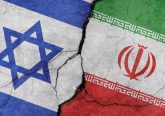In a letter to congress on 14 October 2011 U.S. President Obama announced that he was sending 100 special operations military troops to Uganda. These non-combat troops, Pentagon officials explained, will train and “provide security” to Ugandan forces in fighting against the LRA (Lord’s Resistant Army). While LRA leader Joseph Kony is wanted by the International Criminal Court for crimes against humanity, Ugandan civil society actors and peace activists were skeptical of the U.S. troop deployment to the country. Discussions on social media sites indicated a high level of fear that this move by the U.S. may be related to Uganda’s emerging oil sector while others have argued the move is a silent repayment for Uganda’s troop service in Somalia.
President Obama’s troop deployment is not the first military-to-military training endeavor that the U.S. has been involved in in Uganda. Indeed, the U.S. government has supplied more than $40 million in military aid to the hunt for Joseph Kony since 2008.
In April of 2011, US Army personnel were involved in a two-week training exercise in At Drop Zone Red, near Kapelebyong north of Soroti, in Uganda called Atlas Drop 11. This exercise between UPDF and US service members focused on aerial-delivery resupply missions, to provide material for soldiers operating in remote locations. The training was heralded on the US Army Africa website as building an “increased ability [in] both Ugandan and American Soldiers to adapt to rapidly changing conditions” that the Army hopes will lead to “greater understanding and perhaps even friendship” between the two military forces. The UPDF assisted US army personnel in “how to conduct field operations and how they operate in tactical and combat environments,” according to Major General David R. Hogg, commander of U.S. Army Africa (USARAF). The language of this deployment sounds similar to the ‘capacity building’ component that is essential to the mission of US AFRICOM.
Indeed, the timing of this most recent deployment remains suspicious to scholars and activists. While the LRA have been responsible for 2,400 attacks and 3,400 abductions, at the moment, the LRA are reportedly smaller and more fractured now than in 15 years. The Ugandan military estimates that only 200 to 400 fighters remain. The U.S. deployment comes at a time when the U.S. is wrapping up a NATO-led no-fly zone confrontation in Libya that ended with the extrajudicial killing of former head of state, Muammar Gaddafi. Pan-African scholar and activist Firoze Manji argued in an interview on The Real News Network that the deployment is indicative of U.S. foreign policy interest in furthering the establishment of AFRICOM on the continent.
AFRICOM, authorized by former U.S. President George W. Bush in 6 February 2007, remains unpopular across the continent and is in search of an African central base (since its inception AFRICOM has operated from the Kelley Barracks in Stuttgart, Germany). Africa is increasingly prioritized in U.S. foreign affairs for access and control of resources, mounting competition with China and the perception of the threat of terrorism, particularly in the Sahel.
The military-driven U.S. engagement with Africa corresponds to escalating competition from China and other countries for the exploitation of resource-rich regions of Africa (especially oil, gas and uranium). The U.S. is expected to import two out of every three barrels of its oil from Africa by 2020. Economic dependence on African oil extends to more than one hundred thousand jobs in the U.S., which are directly linked to African oil. The second leading U.S. export to Africa—worth $717.3 million annually—is oil and gas equipment. In this context, oil theft, vandalism, seizures and riots reduce profit from African oil.
The U.S. troop deployment occurs at a time of political infighting within the country and emerging corruption scandals. Uganda recently announced the discovery of viable oil reserves in the northern part of the country, which is estimated to contain over 2.5 billion barrels of oil. In October, President Yoweri Museveni said that the country intended to begin refining its crude products by 2014. At this time, however, little oversight or transparency exists to ensure oil profits are spent in a socially and economically responsible manner and there is little insight into the details of leasing arrangements. Winnie Ngabiirwe of the pro-transparency group, Publish What You Pay Uganda, explained on 2 November that, “Our government has continued to dismiss our concerns, treating the oil and gas sector with the highest level of secrecy. Making agreements accessible to Ugandans, and publishing what the country is earning is an important step necessary for fighting against corruption and embezzlement.” Reports of petro-corruption were heard by the Ugandan parliament in early November 2011. Connections between U.S. military endeavor and a possibly corrupt and non-transparent oil sector could be disastrous for the perception of the U.S military in Uganda. The U.S. Embassy in Kampala, in fact, called a press conference to dispute allegations that the U.S. military envoy had any connection with oil.
The Ugandan author, Jackee Budesta Batanda, wondered about the implications of military action instead of peace talks. In a commentary piece in Pambazuka Press she wrote,
“The Obama administration’s use of military action ignores, undermines, and unravels the work of local players seeking to end the conflict through the resumption of peace talks. Previous military interventions have always resulted in retaliatory attacks on the communities where the rebels have operated. What will this intervention do differently to ensure that there are limited civilian casualties?”
Indeed, other peace activists have considered if a peace delegation would not have been more worthwhile and constructive in finding an end to the conflict. The current peace in Northern Uganda, after all, was achieved through the Juba peace talks in 2006 and a continued emphasis on peace might be more successful than military force, which has proven to be unsuccessful in upending Kony.
While it is not clear that Uganda is a prospective location for AFRICOM, it remains true that this deployment expands U.S.-Uganda military ties at a time when Uganda is experiencing an oil boom and U.S. international policy has certainly illustrated the need to be wary of such connections.








1 Comment